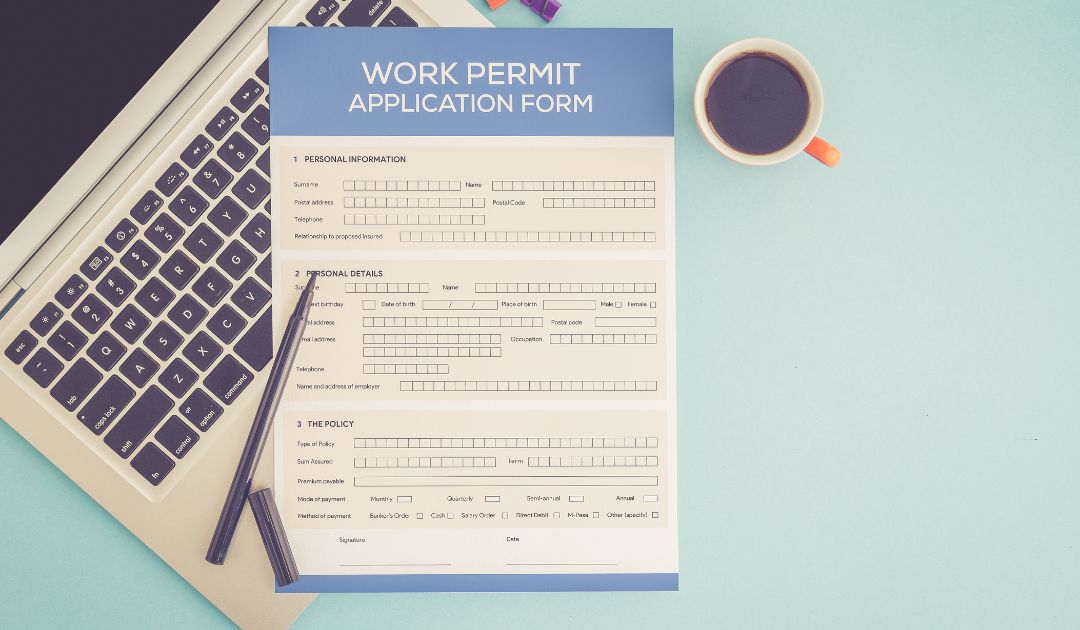There are nine different forms of employment permits a non-EEA national can apply for to allow them to work in Ireland. Employment permits have generous ancillary benefits. Holders may apply for immediate family reunification from the Irish Naturalisation and Immigration Service and on completion of the 2 year permit duration apply for permission to reside and work without the requirement for an employment permit.
The Critical Skills Permit is one of the most common forms of employment permit, in this article we examine the criteria and process required to obtain one.

Working in Ireland
If you are an Irish or a European citizen, you have an automatic right to live and work in Ireland. If you are not from the European Union or from Iceland, Liechtenstein, Norway or Switzerland, you will likely need a special employment permit to work in Ireland.
The Department of Business, Enterprise & Innovation oversees the Employment Permits system. You can make an application online, and they offer a user guide for this application process. There are nine different forms of employment permits a non-EEA national can apply for, of which General Employment Permits and Critical Skills Permits are the most common.
Critical Skills Employment Permit overview
Formerly the Green Card employment permit, the Critical Skills Employment Permit is for skilled workers who are qualified in professions where there is a shortage of skills in Ireland.
Eligible occupations under this type of permit are deemed to be critically important to growing Ireland’s economy, are highly demanded and highly skilled, and in significant shortage of supply in our labour market.
Occupations such as ICT professionals, professional engineers and technologists are catered for under this type of employment permit. The list of eligible occupations is set out in the Critical Skills Occupations List.
Applicants may apply for it before coming to Ireland in most cases. They may also have to apply for a visa to come to Ireland.
Once in Ireland, applicants have to register and get an Irish Residence Permit.
In order to qualify for a Critical Skills permit an employee must be offered a minimum salary of €32,000 from an occupation in the Highly Skilled Eligible Occupations List or a minimum salary of €64,000 from an occupation not on the Ineligible Categories of Employment List. Employers are not required to complete a labour market test. Applications cost €1,000 with €900 of this returnable if unsuccessful.
If successful the non-EEA national will be issued with a Critical Skills Employment Permit for two years and may then request a support letter to apply for a Stamp 4.
The Critical Skills Employment Permit is attractive for a number of reasons:
- Because the skills are identified as being in short supply, a Labour Market Needs Test is not required.
- Permit holders can apply for immediate family reunification from the Irish Naturalisation and Immigration Service of the Department of Justice and Equality and once their dependants/partners/spouses are resident in the State they are eligible to seek any employment and apply to the Department of Enterprise, Trade and Employment for a Dependant/Partner/Spouse Employment Permit which is currently issued free of charge.
- Permit holders may apply to the Irish Naturalisation and Immigration Service for permission to reside and work without the requirement for an employment permit upon completion of the Critical Skills Employment Permit’s duration.
Other general features of employment permits also apply including the full rigour of Irish Employment Rights law. There is also provision to allow the employment permit holder change employer after serving one year with the original employer.
Want to make a bigger impact in your career?
Criteria for eligibility
The Department of Enterprise, Trade and Employment examines a number of criteria when assessing Critical Skills Employment Permit applications including a job offer from a bona-fide employer based and trading in Ireland and who is registered with the Revenue Commissioners.
Eligibility for a Critical Skills Employment Permit is largely determined by the type of occupation, and proposed remuneration level. The following are eligible:
- Occupations with a minimum annual remuneration of €32,000 for a restricted number of strategically important occupations contained in the Critical Skills Occupations List a relevant degree qualification or higher is required.
- In the case of a nurse or midwife, a third level degree or diploma accepted by the Nursing and Midwifery Board of Ireland as a sufficient qualification for registration to practice as a nurse or midwife in the State.
- All occupations with a minimum annual remuneration of over €64,000, other than those on the Ineligible List of Occupations for Employment Permits. A non-EEA national who does not have a degree qualification or higher, must have the necessary level of experience.
- A formal job offer from a company or employer who is registered with Revenue, trading in Ireland and registered with the Companies Registration Office is required.
- The prospective employee concerned must have secured a 2-year job offer in respect of the eligible occupation from the prospective employer.
- The candidate must be directly employed and paid by their employer in Ireland. Job offers from recruitment agencies and other intermediaries are not acceptable for this permit.
The application process

An application for any employment permit must be received at least 12 weeks before the proposed employment start date.
An application for a Critical Skills Employment Permit can be made online on the Employment Permits Online System (EPOS). There is a User Guide (PDF document) available on the online system which guides the applicant through the process and details the documentary requirements for each employment permit type.
Application processing
The application processing times are on the Department’s website. If the application is refused, the candidate must be given the specific reasons it was refused. Candidates may appeal the decision within 28 days, using the form to submit a decision for review.
Fee
The processing fee for a Critical Skills Employment Permit is €1,000. If an application is unsuccessful then 90% of the fee will be refunded.
Residency
Following a successful application for an employment permit, and if visa required, an applicant should apply to his/her local Irish Embassy/Consulate for an entry Visa. An online visa application form may be found at inis.gov.ie. Contact details for Irish Embassies/Consulates and a list of visa required countries may be found on the Department of Foreign Affairs website dfa.ie.
Any persons wishing to enter the State, whether visa required or not, are subject to the usual immigration controls at the port of entry. Therefore, all relevant and supporting documentation, including the original employment permit, must be available for inspection by an Immigration Officer. Entry to the State is always at the discretion of the Immigration Officer.
An employment permit is not a Residence Permission. In order to be lawfully resident in the State, it is a requirement that all non-EEA nationals in possession of an employment permit must register with the Garda National Immigration Bureau.
Stamp 4
Subject to their having complied with their previous immigration and employment permit conditions and being of good character, they will be issued with an immigration permission which allows them to reside and work in the State without the need for a further employment permit. The Immigration permission granted by the Garda National Immigration Bureau will be for 2 years, which is then renewable subject to the persons concerned meeting all relevant criteria. On achieving 60 months residency permission, Critical Skills Employment Permit or Green Card Employment Permit holders will then be permitted to make an application for long term residence, details of which are available on inis.gov.ie.
Candidates who do not satisfy the qualifying criteria will be issued with a Stamp 1 by the Garda National Immigration Bureau and will still be required to hold an employment permit in order to work in the State.
Further Reading: